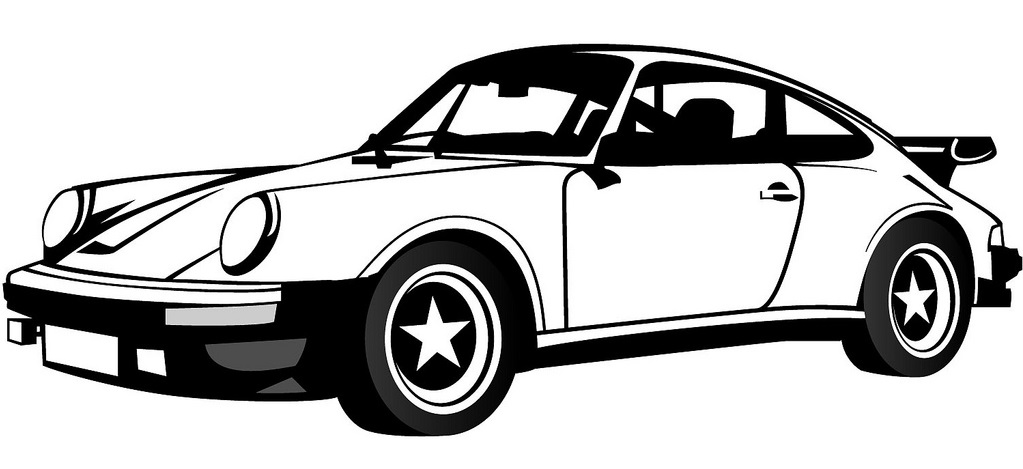A brief history of
Lancia
Introduction
The car manufacturer Lancia has made an important impact on the automotive world. In this article we will give a brief but detailed history of the Lancia marque.
We will look at the origins of Lancia looking at who, why, where and when Lancia was founded. We'll look at the design of the iconic Lancia logo and what are some the more significant Lancia models.
We'll take a glance at what racing history the Lancia has and who some of the most important people have been in the history of Lancia over the years.
Who, where, when and why was
Lancia founded?
Lancia, a historic Italian car manufacturer, was founded in 1906 by Vincenzo Lancia and Claudio Fogolin. The company had its origins in Turin, Italy, where it set out to produce innovative and high-quality automobiles. Vincenzo Lancia, a talented engineer and racing driver, had a vision to create vehicles that combined elegance, performance, and advanced technology.
The establishment of Lancia marked a significant milestone in the automotive industry. Vincenzo Lancia's passion for engineering and his desire to push the boundaries of automotive design fueled the company's foundation. He aimed to produce cars that were not only reliable and efficient but also offered exceptional driving dynamics and refined aesthetics.
One of the key factors that set Lancia apart from its competitors was its commitment to innovation. The company was at the forefront of technological advancements, introducing several groundbreaking features in its cars. Lancia was among the first manufacturers to incorporate independent suspension, hydraulic brakes, and V6 engines in its models, setting new standards for the industry.
Another defining characteristic of Lancia was its involvement in motorsports. Vincenzo Lancia believed that racing provided a platform to showcase the performance capabilities of his cars and validate their engineering prowess. As a result, Lancia achieved considerable success in various racing events, including rally championships and endurance races. The company's racing endeavors not only enhanced its reputation but also contributed to the development of new technologies that were later incorporated into its road cars.
Unfortunately, in the late 20th century, Lancia faced financial challenges and underwent several ownership changes. Despite these difficulties, the brand continued to produce cars that upheld its legacy of innovation and craftsmanship. Today, Lancia remains an iconic name in the automotive world, with a rich history and a loyal following of enthusiasts who appreciate its heritage and unique approach to car manufacturing.
How did the
Lancia logo originate?

How did the Lancia logo originate?
The logo of Lancia, the Italian car manufacturer, has undergone several changes throughout its history, reflecting the evolution of the brand and its values. The company's early logos were characterized by simplicity and elegance, reflecting Lancia's commitment to producing refined and stylish automobiles.
One of the most iconic Lancia logos was introduced in the 1920s. It featured a circular emblem with a blue background and a silver lance at the center, surrounded by the company name "Lancia" in a bold, uppercase font. This logo symbolized the brand's strength, precision, and commitment to quality. It conveyed a sense of elegance and sophistication that became synonymous with Lancia cars.
In the following decades, the Lancia logo underwent subtle changes while maintaining its core elements. The lance motif remained a prominent feature, representing the brand's heritage and its connection to Vincenzo Lancia's passion for swordplay. The color scheme and typography were refined, reflecting contemporary design trends while staying true to the brand's identity.
In recent years, the Lancia logo has seen further refinement. The lance symbol became more streamlined and dynamic, embodying the brand's progressive approach to automotive design. The typography became sleeker and more modern, aligning with the company's commitment to innovation and forward-thinking.
The Lancia logo, with its combination of timeless elegance and contemporary elements, serves as a visual representation of the brand's values and aspirations. It represents Lancia's dedication to creating vehicles that blend style, performance, and cutting-edge technology. As Lancia continues to evolve, its logo will likely continue to evolve as well, reflecting the brand's ongoing commitment to pushing boundaries and setting new standards in the automotive industry.
What are some of the significant
Lancia models?
Lancia has a rich history of producing remarkable models that have left an indelible mark on the automotive industry. With a focus on higher performance, Lancia has consistently pushed the boundaries of engineering and design, delivering vehicles that have captivated enthusiasts and collectors alike.
In the early years of its history, Lancia introduced iconic models that showcased its commitment to performance and innovation. One notable example is the Lancia Lambda, introduced in the 1920s. It was the first car in the world to feature a load-bearing body and independent front suspension, setting new standards for handling and comfort. The Lambda's advanced engineering and exceptional performance made it a standout in its time.
As Lancia entered the mid-20th century, it continued to produce notable models that blended style and performance. In the 1950s, the Lancia Aurelia burst onto the scene with its groundbreaking V6 engine, rear-wheel drive, and aerodynamic design. The Aurelia B20 GT, in particular, became renowned for its exceptional handling and driving experience, making it a sought-after model among enthusiasts.
The 1970s marked another significant period for Lancia, as it introduced the Stratos, a legendary rally car that achieved remarkable success on the world stage. The Lancia Stratos HF was specifically designed for rally racing, featuring a mid-engine layout, lightweight construction, and aggressive styling. It went on to win three consecutive World Rally Championships from 1974 to 1976, solidifying Lancia's reputation as a force to be reckoned with in motorsports.
In the 1990s, Lancia unveiled the Delta Integrale, a performance-oriented version of the popular Delta hatchback. The Delta Integrale took the rally world by storm, dominating the competition and securing multiple championships. Its turbocharged engine, advanced all-wheel-drive system, and distinctive styling made it an instant icon among rally enthusiasts.
Lancia's commitment to higher performance continued into the 21st century with the introduction of the Lancia Stratos Concept. Paying homage to the original Stratos, this modern interpretation showcased the brand's dedication to cutting-edge design and engineering. While the production version of the Stratos Concept was limited, it served as a testament to Lancia's enduring legacy and its ability to captivate the imagination of automotive enthusiasts.
Throughout its history, Lancia has consistently delivered significant models that embody the brand's pursuit of performance and innovation. From the groundbreaking Lambda to the rally-dominating Stratos and the iconic Delta Integrale, Lancia has left an indelible mark on the automotive landscape. These higher-performance models represent the essence of Lancia's passion for engineering excellence and its commitment to creating vehicles that deliver an exceptional driving experience.

One of Lancia's Most Iconic Models
Who are some of the most important people in
Lancia's History
Behind the success of Lancia's most significant models are the individuals who have contributed their talent, vision, and expertise to the brand. These notable people have played pivotal roles in shaping Lancia's legacy and establishing its reputation as a manufacturer of exceptional cars.
One prominent figure in Lancia's history is Vincenzo Lancia, the company's founder. Born in 1881 in Italy, Vincenzo Lancia possessed a deep passion for automobiles and a keen sense of innovation. Alongside his partner Claudio Fogolin, he established Lancia & C. Fabbrica Automobili in 1906. Vincenzo Lancia's engineering prowess and commitment to quality craftsmanship laid the foundation for the brand's early success.
Another influential figure in Lancia's story is Cesare Fiorio, a renowned motorsport manager. Fiorio joined Lancia in the 1970s and played a crucial role in the brand's dominance in rally racing. Under his leadership, Lancia achieved remarkable success, securing multiple World Rally Championships with iconic models like the Stratos and the Delta Integrale. Fiorio's strategic acumen and his ability to assemble talented teams contributed to Lancia's racing achievements and cemented the brand's status as a force to be reckoned with in motorsports.
In addition to Vincenzo Lancia and Cesare Fiorio, other notable individuals have left their mark on the brand. One such person is Sergio Camuffo, who served as Lancia's chief designer in the 1990s. Camuffo's design expertise was instrumental in shaping the iconic Delta Integrale, infusing it with a distinctive and aerodynamic aesthetic that captured the hearts of enthusiasts.
Another significant individual in Lancia's history is Carlo Abarth, an engineer and entrepreneur who collaborated with the brand in the 1960s. Abarth's expertise in performance tuning and his association with Lancia led to the creation of high-performance versions of Lancia models, including the Abarth-tuned versions of the Lancia Fulvia and the Lancia 037. His contributions to Lancia's performance offerings have solidified the brand's reputation for producing exhilarating and engaging driving experiences.
These individuals, along with many others who have contributed their talents and expertise to Lancia, have played a crucial role in shaping the brand's success. From the visionary leadership of Vincenzo Lancia to the motorsport prowess of Cesare Fiorio, the design brilliance of Sergio Camuffo, and the performance expertise of Carlo Abarth, these individuals have left an indelible mark on Lancia's legacy and have contributed to the development of some of the brand's most significant and iconic models.

One of the most influential people in the history of Lancia
Lancia's Racing History
Lancia has a rich and storied history in the world of motorsport, with a strong presence in various racing disciplines. The brand's commitment to performance and innovation has led to remarkable successes on the track, solidifying its reputation as a formidable competitor in the racing arena.
One of the most notable chapters in Lancia's racing history is its dominance in rally racing. In the 1970s and 1980s, Lancia achieved unprecedented success in the World Rally Championship (WRC). The brand's rally cars, such as the Lancia Stratos and the Lancia Delta Integrale, became icons of the sport. Lancia's rally success can be attributed to its exceptional engineering, advanced technology, and the talents of its drivers and team members. The Lancia Stratos, introduced in the mid-1970s, secured three consecutive WRC titles from 1974 to 1976, showcasing the brand's prowess in rally racing.
In the 1980s, Lancia continued its rally domination with the introduction of the Lancia Delta Integrale. This legendary rally car achieved unprecedented success, winning six consecutive WRC Constructors' Championships from 1987 to 1992. The Delta Integrale's combination of powerful engines, advanced four-wheel drive systems, and agile handling made it a force to be reckoned with on both asphalt and gravel surfaces. Lancia's rally team, supported by talented drivers like Juha Kankkunen and Miki Biasion, brought home numerous victories and cemented Lancia's reputation as a rallying powerhouse.
Aside from rally racing, Lancia has also made its mark in other racing disciplines. The brand has competed in endurance racing, including the iconic 24 Hours of Le Mans. In 1953, Lancia entered the Le Mans race with the Lancia D20, a purpose-built sports car designed for endurance racing. The D20 achieved a commendable 2nd-place finish, showcasing Lancia's engineering excellence and durability.
In addition to rallying and endurance racing, Lancia has also participated in touring car championships. In the late 1990s and early 2000s, Lancia fielded the Lancia Delta in the Super Touring class of various touring car championships. The Delta, equipped with a powerful turbocharged engine and advanced aerodynamics, competed against formidable opponents in touring car racing.
Lancia's racing legacy is a testament to the brand's commitment to performance, innovation, and competition. From its rally dominance with iconic models like the Stratos and the Delta Integrale to its forays into endurance racing and touring car championships, Lancia has consistently pushed the boundaries of racing excellence. The brand's achievements on the track have not only solidified its place in motorsport history but also inspired the development of some of its most significant road-going models, embodying the spirit of high-performance racing.
Summary
Lancia is a car manufacturer with a rich and illustrious history in the world of motorsport. The brand's racing legacy is defined by its exceptional performances in rally racing, particularly during the 1970s and 1980s. Cars like the Lancia Stratos and Lancia Delta Integrale became legendary icons of the sport, securing multiple World Rally Championship titles and showcasing Lancia's engineering prowess and technological innovation.
Aside from rally racing, Lancia has also made notable appearances in endurance racing and touring car championships. The brand's participation in the 24 Hours of Le Mans with the Lancia D20 demonstrated its endurance capabilities, while its presence in touring car championships with the Lancia Delta highlighted its performance in different racing disciplines.
Throughout its racing history, Lancia has consistently pushed the boundaries of racing excellence and left an indelible mark on the motorsport world. The brand's success on the track is a testament to its commitment to performance, innovation, and competition. Lancia's achievements in rallying, endurance racing, and touring car championships have not only solidified its place in motorsport history but have also inspired the development of some of its most significant road-going models. Lancia's racing heritage continues to resonate with car enthusiasts and serves as a testament to the brand's passion for speed, performance, and the pursuit of automotive excellence.
View Lancia Car Specifications
More Manufacturer Histories.

























